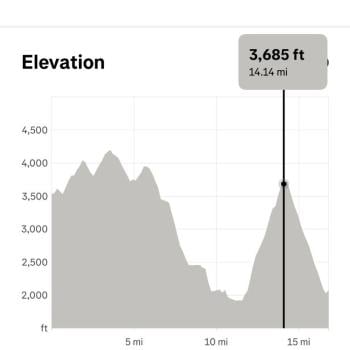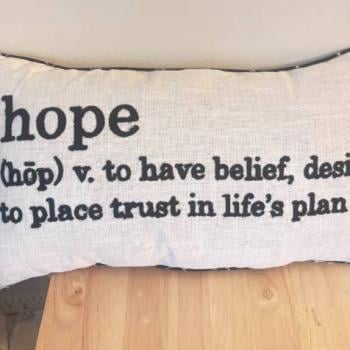Last week, I offered part 1 on my reflection on how to use the 12 Steps as a guide for spiritual growth. This week, I would like to continue and conclude my exploration with the 12 steps. As a note of respect, I am not an alcoholic, my ponderings this week and last week reflect my exposure to AA across all the disciplines I have studied in my professional career. If you are someone who is struggling with an addictive behavior like alcoholism, there is HOPE and there is help.
I would like to explore three steps: Prayer and Meditation, Spiritual Awakening and Making Amends. It is felt that these three full demonstrate the embodiment of a spiritually informed life.
Making Amends and Continued Inventory
We all make mistakes sometimes and we hurt ourselves and the people around us. Learning about humility here is the key to this spiritual practice.
Making amends is a practice in reconciliation and a bold step in helping us move forwards in our healing and the healing of the relationships we have damaged.
Continued inventory involves the practice of self-reflection. Regular self-reflection shows a personal commitment to ongoing personal development and integrity. When you study the intention behind this step from the Big Book, you will find a lot of vulnerability in the words written about and the actions taken.
I found these words particularly profound:
I make amends to those that I have harmed. I pay back debts I owe. I apologize. I write letters. I find time to do and say things that would help heal the damage that I have done. I try to bring goodness where previously I had brought discord and destruction. It takes insight, courage and dedication to make such amends, but now I have the help of my God to know what to do and how to do it. I learn to earnestly seek the right way to go about this process from my God. I start to live the kind of life that my God has meant for me to live all along.
The bible is a good reference point to reflect the posture we should take when we hurt others. Matthew 5:23, 24 offers: “Therefore if you are presenting your offering at the altar, and there remember that your brother has something against you, leave your offering and go; first be reconciled to your brother, and then come and present your offering.” Here, we don’t read, “If you have something against your brother,” but instead, “If your brother has been hurt or offended by you.” This posture is always the one I coach my clients to reflect. Healthy relationships are mutual. Both are in tune with each other’s physical and spiritual presence. Attentiveness alerts us to the changes in these presences and when these changes signal a problem. The Gottman’s would encourage the couple to “turn towards” each other to “manage the impending conflict”
Seeking through Prayer and Meditation
I cannot write enough about the power of prayer and meditation. This morning, I was running with my dog, and I had intended to run with music. Cell reception is not too great out where I live and so I spent a good amount of time in moving mediation, focusing on my breath, focusing on my dog’s breath, and focusing on the buzzing of the August cicadas. It turned out to be a very relaxing and enlightening run.

The 11th Step for AA offers that we “Sought through prayer and meditation to improve our conscious contact with God as we understood Him, praying only for knowledge of His will for us and the power to carry that out.” 12 Steppers believe that prayer and spirituality are fundamental foundation stones to living a sober life. While the intention here is on sobriety from Alcohol, we can take a lesson on other ways we engage in insobriety in our lives and how this step is practical for each one of us. I mentioned last week that I had to go to several meetings over the course of my training as a social worker, pastor and therapist and while I do not have a problem with alcohol, I have walked away each time with some insight.
Regular spiritual practice such as meditative running for me, but perhaps simply prayer and meditation, reading your bible or your holy scriptures strengthens our connection to the divine. This regular practice helps maintain our spiritual focus and balance.
Spiritual Awakening and Service
Coming now full circle, we have awakened our spiritual selves, and we begin to live life in such a way to be a benefit to others. Sharing our spiritual experiences and then helping others is a hallmark of spiritual maturity. It reflects the understand that true growth involves to the contributing to the wellbeing of others. Here, we become human beings, beings connected to each other. Beings who are being present and attentive to those around us.
Awareness of and acceptance of our ignorance is the highest level of spiritual maturity. Service then is an extension of our awareness of our ignorance. We serve others, we serve the world around us to combat our ignorance and to get to truly know those we do not know around us.
Step Twelve declares that as the result of these Steps, one experiences a spiritual awakening that compels them to carry to others the AA message of a spiritual solution. Step Twelve traditionally equates to service work. It’s Step 12 that encourages one to sponsor other alcoholics and addicts, take on service commitments, greet newcomers, participate in the meeting before the meeting and the meeting after the meeting, serving as treasurer for their home group, taking hotline calls from those who are actively using and addicts who want help, going to hospitals and prisons to lead meetings for those who cannot get out, and other outreach activities. For the rest of us who are struggling with addictions, we can and should take note of the posture here.
A Powerful Tool
I have sat with many clients over the years who have been ravaged by all sorts of addictions. I have seen marriages torn apart and I have seen children traumatized. I have heard plenty of “rock bottom” stories. The 12 steps have always been a guide for me to help these clients. Pointing these clients to a group that has shared in their misery and giving them a sense of identity outside the bottle and helping them to move towards sobriety has been beautiful to watch.
The Twelve Steps can be a powerful tool for those not struggling with addiction as well. Community, accountability, responsibility, and vulnerability are all core to the AA program. It is felt that in 2024, our world needs a little more of this.













